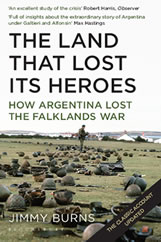That Maradona was among the first Argentine celebrities to grieve publicly over Nestor Kirchner ‘s dead body is not surprising.
As I relate in the updated edition of my biography of Maradona , Hand of God , the player not only shared an anti-US ‘Bolivarian revolution’ platform with Kirchner (and with Chaves), but also counted on the former Argentine president’s political support for his controversial appointment as national football coach in the run-up to last year’s World Cup in 2010.
I was told that Julio Grondona, the president of the Argentine Football Federation, received personal phone calls not just from Kirchner but also from his friend Chaves urging him to appoint Maradona in the interest of Latin American solidarity. Quite what Latin American solidarity, whatever that is, has to do with successful football is anyone’s guess- but the fact was that Argentina’s humiliation by Germany destroyed the myth and exposed Maradona for what he is- a legendary player, subject to paranoid tantrums, but without the technical skills and psychology required to manage a team of top class players in a highly competitive tournament.
Maradona turns 50 this weekend. Last week I was in Toledo, Spain, watching a team of Real Madrid veterans, led by Emilio Buitragueno play a full 90 minutes against a local team in a charity match. El Buitre, in his mid ‘40’s while lacking the pace of his star years, looked fit and sharp, directed the squad from a slightly forward creative midfield position like an elderly Xavi Alonso, and helped create or score himself half a dozen goals.When not playing his veteran matches, El Buitre works full-time as a senior director in charge of external relations with the Real Madrid of Florentino Perez presidency.
As Maradona completes his half century, one cannot but pay tribute to the genius with the ball that once was, while lamenting the squandered opportunity to have played many more years, and even learn to become a great manager along the way.

